A firefighter who became a royally recognized marine science safari guide
Adele Pile Ph.D. ’96 found W&M’s Batten School & VIMS to be a perfect match for her trailblazing spirit
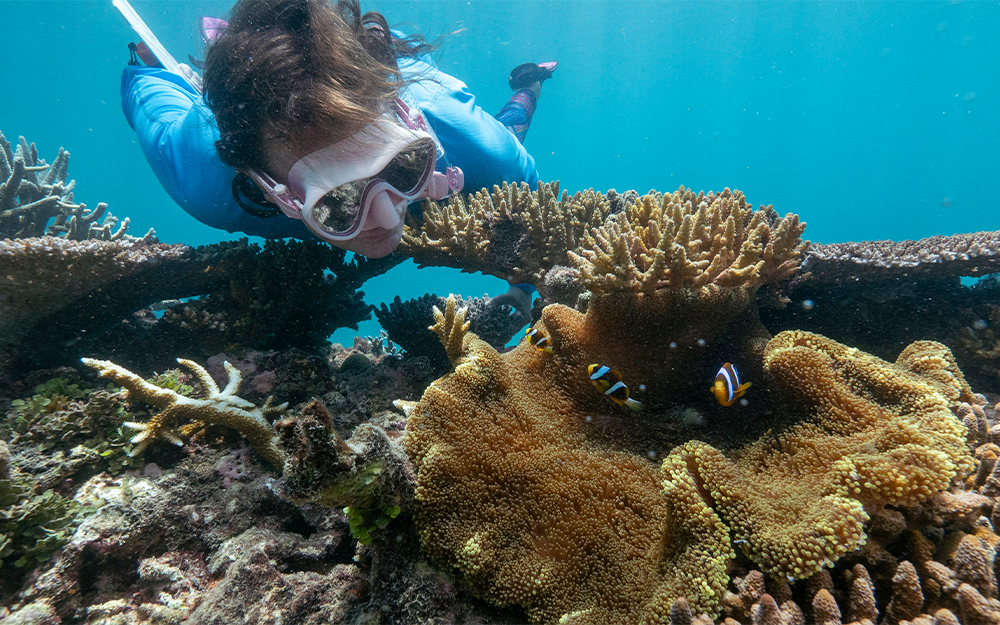 Adele Pile and her husband, Stuart, never expected that their small eco-tourism business would win awards. Great Barrier Reef Safaris was initially envisioned as a simple retirement business, yet a confluence of circumstances, combined with Pile's marine science expertise, led to prestigious recognitions at the 2022 Beyond Service Awards. Presented by the King’s Trust Australia to honor military veteran entrepreneurs, Stuart, a former member of the navy, won the Environmental Warrior Award, while Great Barrier Reef Safaris was personally selected by then-Prince Charles as the Business of the Year.
Adele Pile and her husband, Stuart, never expected that their small eco-tourism business would win awards. Great Barrier Reef Safaris was initially envisioned as a simple retirement business, yet a confluence of circumstances, combined with Pile's marine science expertise, led to prestigious recognitions at the 2022 Beyond Service Awards. Presented by the King’s Trust Australia to honor military veteran entrepreneurs, Stuart, a former member of the navy, won the Environmental Warrior Award, while Great Barrier Reef Safaris was personally selected by then-Prince Charles as the Business of the Year.
For someone who started their professional career as the first female firefighter in the Alexandria Fire Department in Virginia, Pile’s journey to becoming a royally recognized conservationist has been winding and unexpected. “I went straight from high school into working for the fire service,” she said. “After five years, I was ready for change, but I was basically only qualified to drive big trucks and spray water on things.”
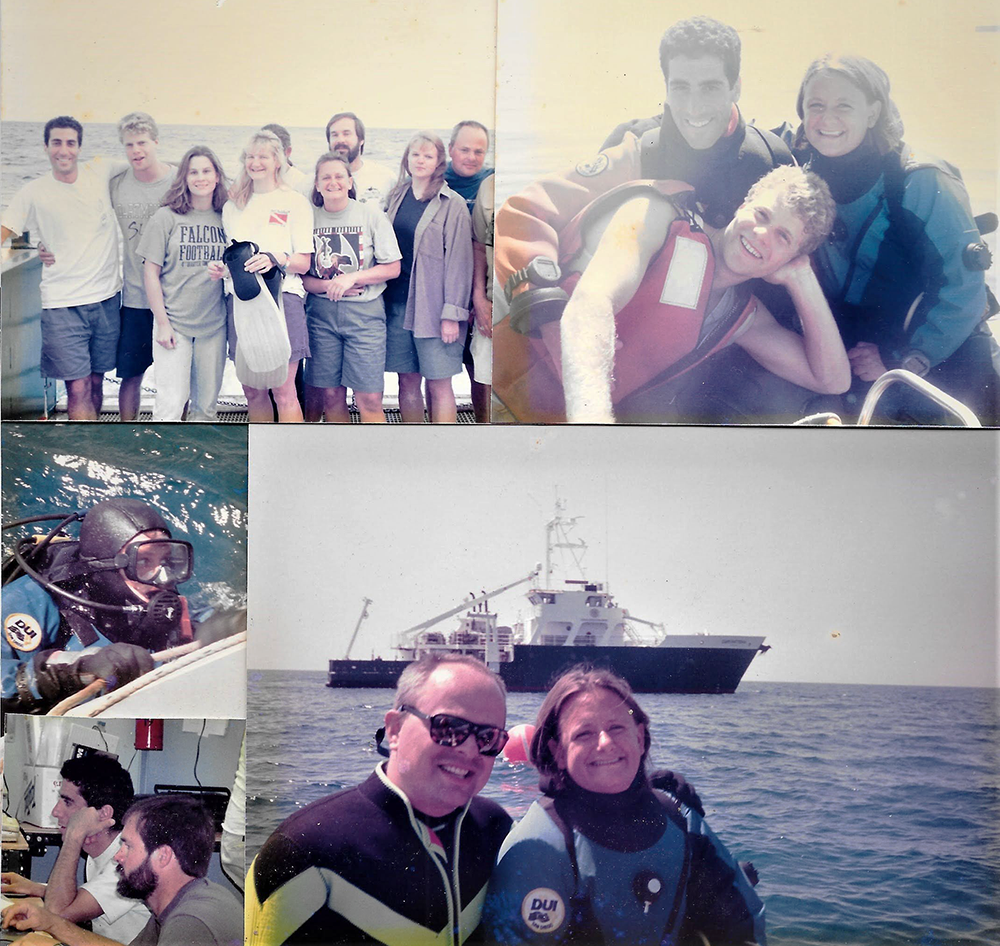 The transition into marine science was unplanned. After enrolling at Boston University, Pile joined the marine program simply because they had the shortest line when needing to have undergraduate paperwork signed. That choice of convenience changed her life, leading to a semester at Woods Hole Oceanographic Institution, which catalyzed a passion for marine science.
The transition into marine science was unplanned. After enrolling at Boston University, Pile joined the marine program simply because they had the shortest line when needing to have undergraduate paperwork signed. That choice of convenience changed her life, leading to a semester at Woods Hole Oceanographic Institution, which catalyzed a passion for marine science.
After graduation, Pile spent a year exploring Australia, funded by a prestigious Ada Draper Award, and then began her pursuit of a graduate degree at William & Mary’s Batten School & VIMS.
Mentorship empowers cutting-edge research
Supported by a Sea Grant scholarship, Pile first earned a master’s degree from the Batten School of Coastal & Marine Sciences under advisor Rom Lipcius, but she also found essential support from mentors like Jacques Van Montfrans, Robert “JJ” Orth and Mark Luckenbach.
While her primary research analyzed a decade of seagrass survey data, Pile was also assigned to a crab recruitment field experiment—one nearly derailed by a Chesapeake Bay hurricane, if not for the dedication of her mentors. “They took me out in the field, we pushed through the hurricane and I got the final data I needed,” she said.
For her Ph.D., Pile studied under Mark Patterson, who was known for his work in coral physiology and robotics. “When I told Mark I was going to accept his fellowship offer,” Pile recounted, “he said, ‘Great! What size wet suit do you wear?’”
Soon enough, Pile found herself in Siberia’s Lake Baikal, the world's oldest and deepest lake and home to freshwater sponges. And the research adventures for Pile never stopped, from studying undersea mountains off the Gulf of Maine to a stay at Florida’s underwater lab, Aquarius.
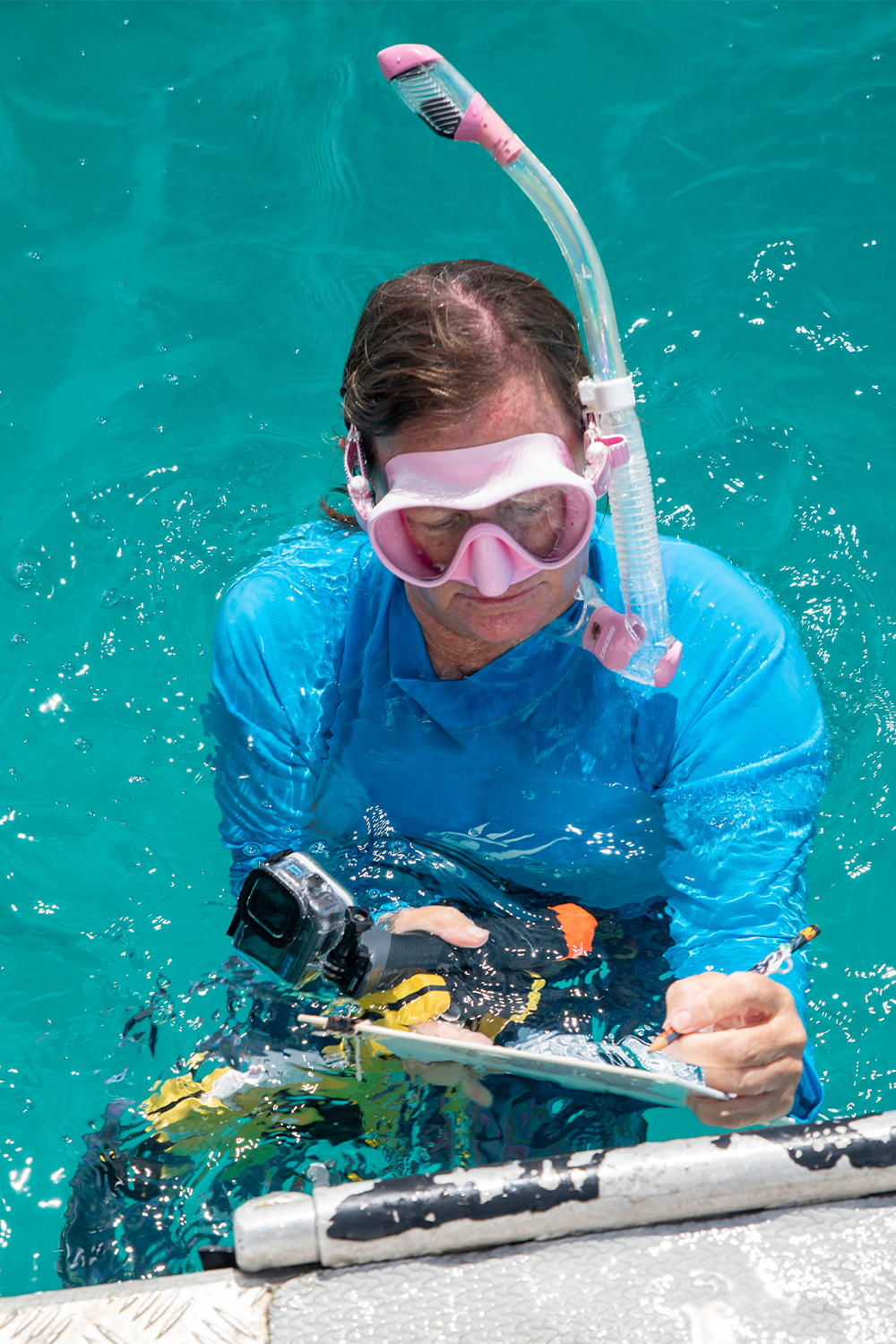 “I got to live underwater,” Pile said. “It was just an amazing time to be a graduate student.”
“I got to live underwater,” Pile said. “It was just an amazing time to be a graduate student.”
It may have been fun, but Pile’s doctoral research also turned out to be revolutionary. “At that point, no one knew what sponges ate, because they eat plankton that are too small to even be counted with a microscope. I realized we needed to use laser technology, but only a handful of labs in the world were doing it at the time,” she recounted.
“Mark said, ‘If you can organize with one of those labs, I’ll pay for you to go.’ So, I took the samples from Siberia to a lab in Hawaii. It was really important work, because it totally changed the way we think about how carbon cycles around the planet.”
Though using a flow cytometer is today a common practice to count bacteria, Pile estimates that, at the time, she was one of only four people in the world who knew how to do so. It was these types of opportunities in graduate school that made her burgeoning career possible.
“During my time at VIMS, I created a unique toolkit of skills that I could apply to problems. It wasn’t just the technology. I knew how to do field work. I knew how to set up a proper experimental design. I knew my way around a research vessel. All of those intangible, soft skills that you can't get if you're not at a place where you're immersed in it are just part of the DNA of VIMS,” she said.
From marine research to eco-tourism
Pile's toolkit led her to a postdoctoral position at Harbor Branch Oceanographic Institution, where she applied her techniques in the Bahamas and the Gulf of Mexico, publishing seminal works in which she answered longstanding questions about what deep-sea creatures eat and how they acquire nitrogen.
“It was really cutting edge, so I was kind of in demand,” Pile admitted, “but by this time I was 38 and knew that, if I did not move to a city, I was going to be 40 and have far too many cats. So, I accepted a tenure track faculty position at Flinders University, which is in Adelaide, Australia.”
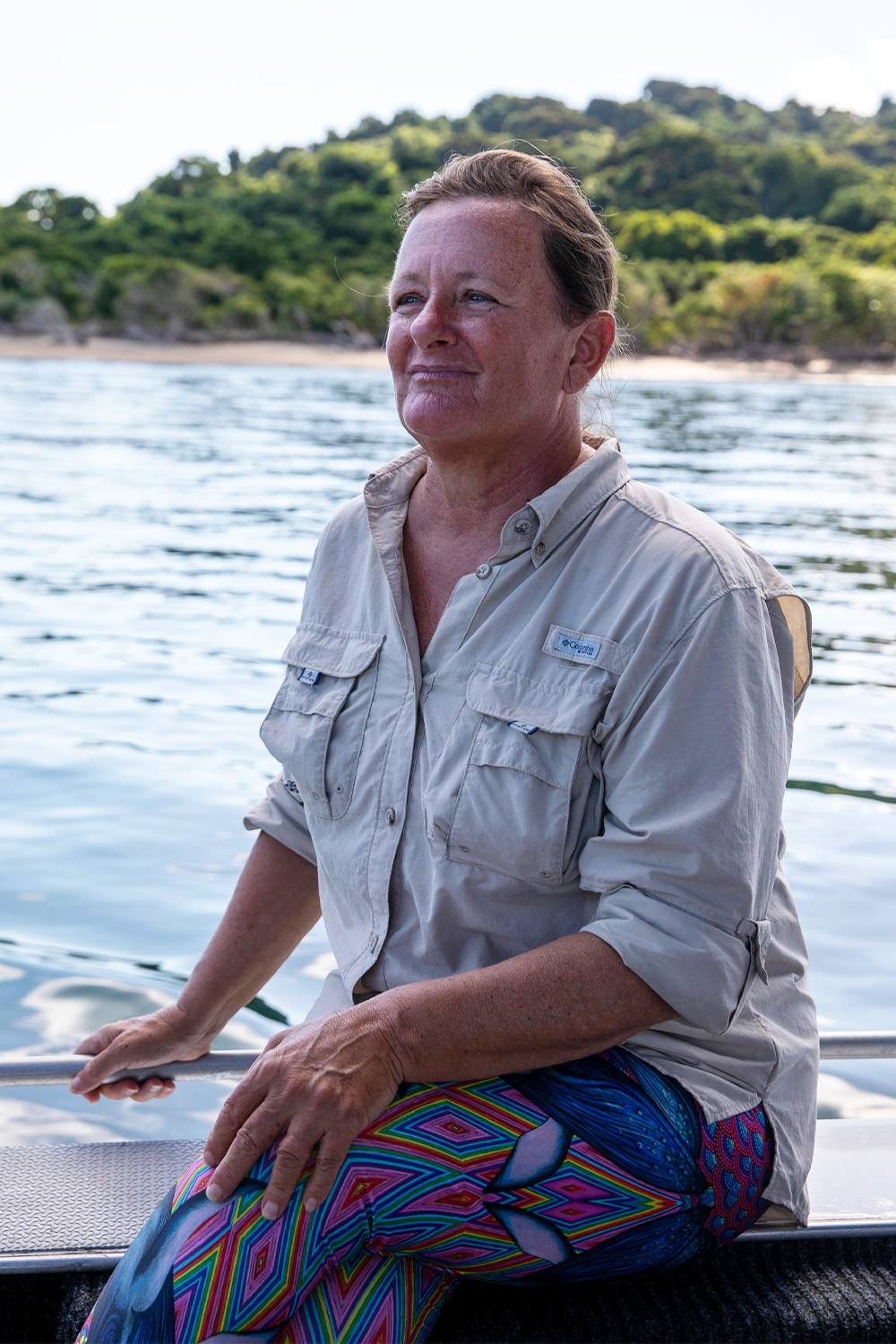 From there, Pile moved to the University of Sydney, or “the Harvard of the Southern Hemisphere,” as she called it. Pile directed programs with thousands of students and ran a large deep-sea research lab, contributing to major breakthroughs, including the first submersible expedition into an active underwater volcano. There, they discovered new hydrothermal systems dominated by vertebrates, which was named in 2006 as one of the top global scientific achievements of the year.
From there, Pile moved to the University of Sydney, or “the Harvard of the Southern Hemisphere,” as she called it. Pile directed programs with thousands of students and ran a large deep-sea research lab, contributing to major breakthroughs, including the first submersible expedition into an active underwater volcano. There, they discovered new hydrothermal systems dominated by vertebrates, which was named in 2006 as one of the top global scientific achievements of the year.
Soon after, Pile made another discovery: she met Stuart—though she was already known in his household as one of his three children had studied Pile for a school project. “I was his son’s homework,” she laughed, “but it was my chance to be a stay-at-home mom for a while, so I took the opportunity.” However, once their children grew up and moved out, the empty nesters began looking for their next adventure.
“I found this little business for sale in a tiny place called Mission Beach that did tourism, transport services for people who live on nearby islands and supported scientific research as a general boat for hire," said Pile, who pitched the idea to her husband over dinner. Stuart asked to sleep on it, but the next morning he resigned from his job as a general manager at Australia's biggest telecommunications company.
Two months later, the couple was in Mission Beach finalizing their purchase of the business—two weeks before Australia's first covid lockdown. But instead of a setback, the pandemic became an unexpected opportunity.
“We survived because research institutes weren’t allowing their scientists to go do field work; boats are such close quarters,” said Pile. “But we had a dispensation from the government, because our boat was considered an extension of the home, so people were ringing us and having us go collect their data for them.”
Today, Pile estimates that Great Barrier Reef Safaris’ revenue is 25% educational snorkeling safaris, “which are no different from teaching undergraduate and Ph.D. students,” 25% transport services and 50% monitoring the Great Barrier Reef as part of the Tourism Reef Protection Initiative.
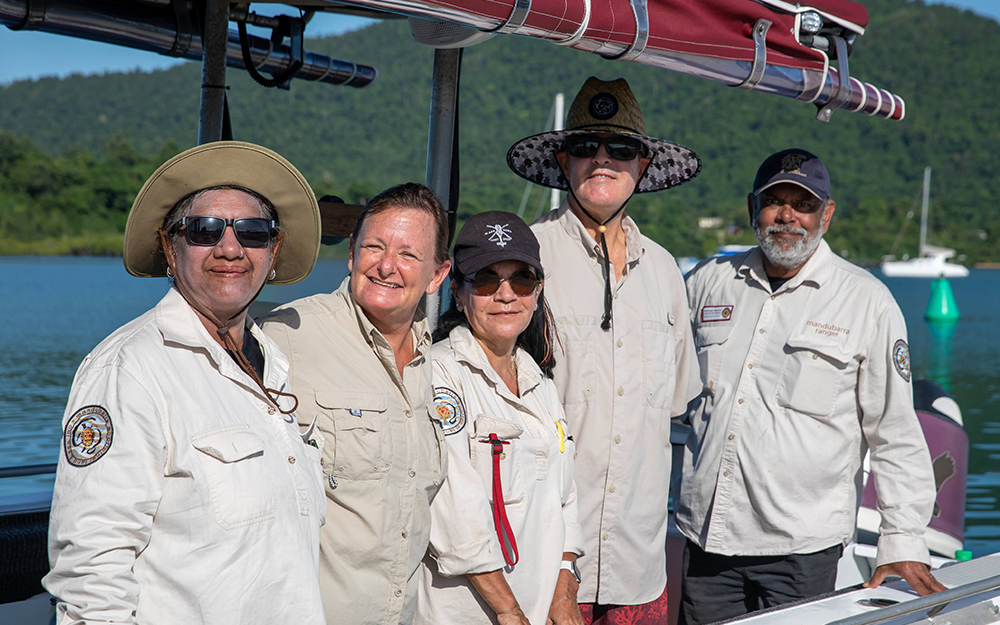 The reef monitoring is done in cooperation with two First Nations peoples, “which is probably the most rewarding work I’ve ever done,” Pile said. “While we're collecting data and teaching their young people how to do the monitoring, the elders are sharing stories about behaviors of animals and weather systems, bringing traditional knowledge and Western science together for the health of the country.”
The reef monitoring is done in cooperation with two First Nations peoples, “which is probably the most rewarding work I’ve ever done,” Pile said. “While we're collecting data and teaching their young people how to do the monitoring, the elders are sharing stories about behaviors of animals and weather systems, bringing traditional knowledge and Western science together for the health of the country.”
Reflections on a diverse career
Pile offers simple, powerful advice to future marine scientists: “Always choose the path of least resistance, because if you're beating your head against a brick wall, you're not meant to be there. Be open to change. Figure out what you like, take those things with you and leave behind the things that you don't like.”
From firefighter to international traveler, graduate student to global researcher and university administrator to community-based conservationist, Pile continues to embody the unique, unexpected places to which a Batten School & VIMS education can lead.
This alumni profile was published in August, 2025.

